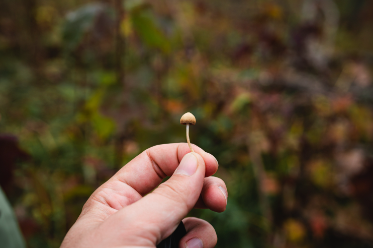Unlimited Sciences recently published findings from an observational psilocybin study on the health effects of psilocybin use.

DENVER–(BUSINESS WIRE)–Colorado-based psychedelic research nonprofit Unlimited Sciences recently published findings from an observational psilocybin (commonly known as ‘magic mushrooms’) study on the health effects of psilocybin use. The study, which represents the world’s largest longitudinal dataset on naturalistic psilocybin use to date, is published in Frontiers in Psychiatry and indicates broad therapeutic potential of a single dose of psilocybin to produce lasting improvements in mental health and wellbeing. Results are highly consistent with the growing body of evidence from clinical trials, behavioral pharmacology and epidemiological data on psilocybin and provide an important window into the current resurgence of public interest in classic psychedelics.
“Outside of clinical research settings, psilocybin is capable of producing significant and persisting changes in psychological health and wellbeing, such as reductions in anxiety, depression and alcohol misuse,”
“Outside of clinical research settings, psilocybin is capable of producing significant and persisting changes in psychological health and wellbeing, such as reductions in anxiety, depression and alcohol misuse,” said Unlimited Sciences Executive Director and Chief Scientific Officer Matthew X. Lowe, Ph.D. “Additionally, our results indicate lasting changes in psychological functioning such as increased cognitive flexibility, emotion regulation and spiritual wellbeing, and even alterations to personality traits such as increased extraversion and reduced neuroticism.”
Data was collected from surveying 8,006 participants over a two year period. A series of six sequential surveys administered over several months sought to characterize self-reported psilocybin use patterns and subjective drug effects, as well as assess changes to physical and mental health, personality, well-being, and psychological functioning before to after psilocybin use. Unlike clinical trials, observational research studies observe participants in real-world environments, can be done quickly with larger sample groups and are regarded as a critical indicator of how outcomes translate to clinical practice. According to a 2019 survey, an estimated 5.5+ million people in the U.S. used psychedelics in the past year, and usage is likely to increase rapidly as more states move toward decriminalization or full legalization.
“We are facing a worldwide mental health epidemic and new treatment methods are critically needed,” said Dr. Lowe. “This research highlights the unique therapeutic potential of psychedelics in settings that lack structured psychological support and holds promise for future research seeking to understand how psilocybin can enhance wellbeing and spirituality.”
Unlimited Sciences sponsored this study to gather self-reported information on the health effects of psilocybin consumption in real-world settings. The accumulation of this information equips the nonprofit with the necessary data to effectively implement a toll-free call center where members of the Unlimited Sciences team can offer community support to those seeking to learn more about safely using psychedelics. The call center will provide education, not medical advice, on the risks and benefits of psilocybin consumption with the overall goal of mitigating harm and empowering individuals to make better informed decisions on psychedelic consumption.
Unlimited Sciences is a psychedelic research nonprofit that uses the power of data to serve the community, educate the public, and inform common-sense practices and policies regarding psychedelic use. At Unlimited Sciences, we are focused on driving psychedelic research forward, and our goal is to capture observational data in real-world settings and share these results with the public. Together, with the power of US, we can mitigate harm and reduce stigma through education.
No comment yet.
Join our email list and get immediate access to part one of our psilocybin guide. You’ll also get the latest in how we’re bridging the gap between science and soul: psychedelic research updates, real-world findings, community-driven education, personal stories and expert insights on natural medicine.
Advancing Real-World Psychedelic Research and Science-Backed Education
Unlimited Sciences is provided with a nonprofit status by fiscal sponsorship through Realm of Caring Foundation.
Federal EIN: 46-3371348.
© 2025 Unlimited Sciences. All Rights Reserved.
Designed by Gloss